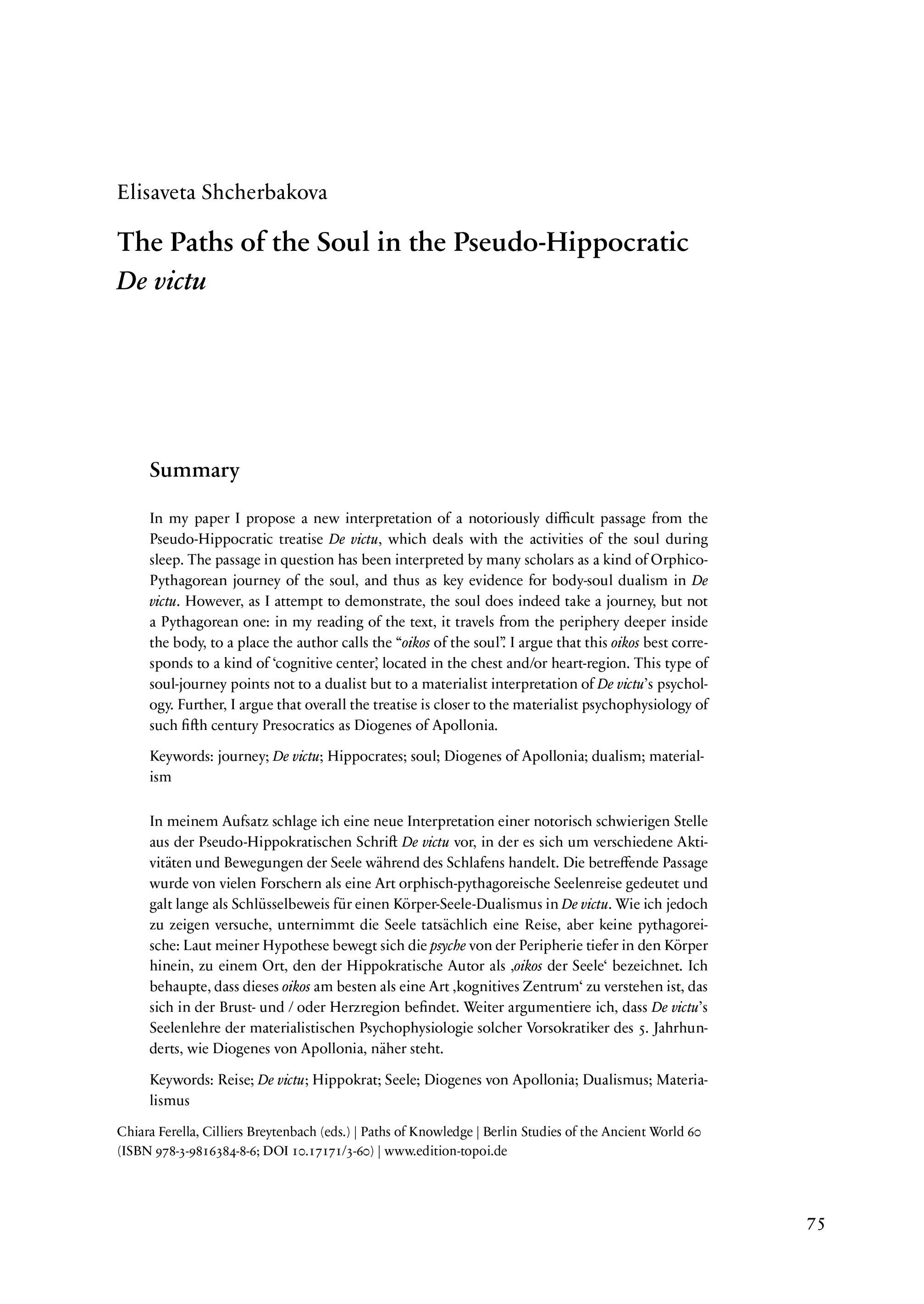The Paths of the Soul in the Pseudo-Hippocratic De victu
In my paper I propose a new interpretation of a notoriously difficult passage from the Pseudo-Hippocratic treatise De victu, which deals with the activities of the soul during sleep. The passage in question has been interpreted by many scholars as a kind of Orphico-Pythagorean journey of the soul, and thus as key evidence for body-soul dualism in De victu. However, as I attempt to demonstrate, the soul does indeed take a journey, but not a Pythagorean one: in my reading of the text, it travels from the periphery deeper inside the body, to a place the author calls the “oikos of the soul”. I argue that this oikos best correspondsto a kind of ‘cognitive center’, located in the chest and/or heart-region. This type of soul-journey points not to a dualist but to a materialist interpretation of De victu’s psychology. Further, I argue that overall the treatise is closer to the materialist psychophysiology of such fifth century Presocratics as Diogenes of Apollonia.
In meinem Aufsatz schlage ich eine neue Interpretation einer notorisch schwierigen Stelle aus der Pseudo-Hippokratischen Schrift De victu vor, in der es sich um verschiedene Aktivitäten und Bewegungen der Seele während des Schlafens handelt. Die betreffende Passage wurde von vielen Forschern als eine Art orphisch-pythagoreische Seelenreise gedeutet und galt lange als Schlüsselbeweis für einen Körper-Seele-Dualismus in De victu. Wie ich jedoch zu zeigen versuche, unternimmt die Seele tatsächlich eine Reise, aber keine pythagoreische: Laut meiner Hypothese bewegt sich die psyche von der Peripherie tiefer in den Körperhinein, zu einem Ort, den der Hippokratische Autor als ‚oikos der Seele‘ bezeichnet. Ichbehaupte, dass dieser oikos am besten als eine Art ‚kognitives Zentrum‘ zu verstehen ist, dass ich in der Brust- und / oder Herzregion befindet. Weiter argumentiere ich, dass De victu’s Seelenlehre der materialistischen Psychophysiologie solcher Vorsokratiker des 5. Jahrhunderts, wie Diogenes von Apollonia, näher steht.

